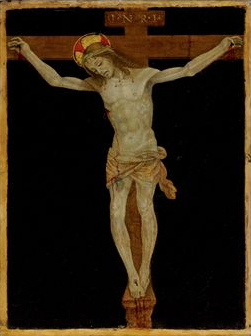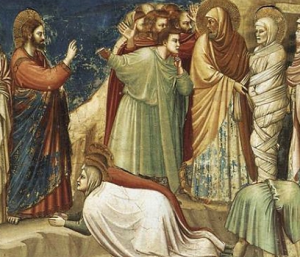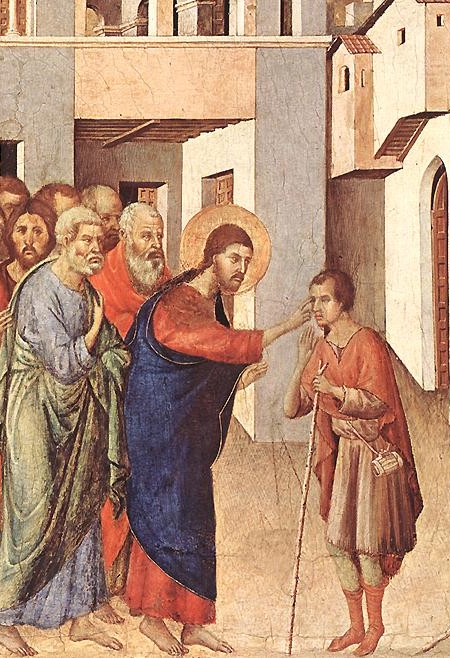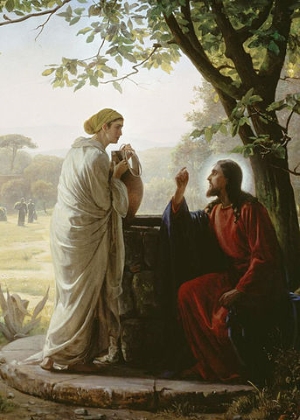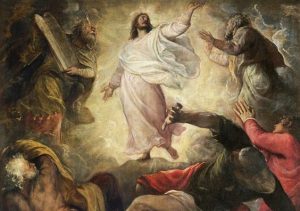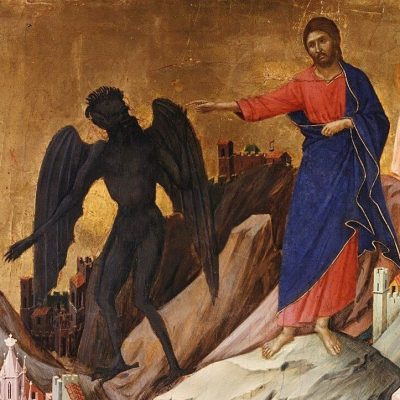Sunday Bible Reflections
This Sunday
The Anointing: Scott Hahn Reflects on the Feast of the Baptism of the Lord
The Liturgy last week revealed the mystery of God’s plan—that in Jesus all peoples, symbolized by the Magi, have been made “coheirs” to the blessings promised to Israel. This week, we’re shown how we claim our inheritance.
Jesus doesn’t submit to John’s baptism as a sinner in need of purification. He humbles Himself to pass through Jordan’s waters in order to lead a new “exodus”—opening up the promised land of heaven so that all peoples can hear the words pronounced over Jesus today, words once reserved only for Israel and its king: that each of us is a beloved son or daughter of God (see Genesis 22:2; Exodus 4:22; Psalm 2:7).
All Is Fulfilled: Scott Hahn Reflects on Passion Sunday
“All this has come to pass that the writings of the prophets may be fulfilled,” Jesus says in today’s Gospel (see Matthew 26:56).
Indeed, we have reached the climax of the liturgical year, the highest peak of salvation history, when all that has been anticipated and promised is to be fulfilled.
By the close of today’s long Gospel, the work of our redemption will have been accomplished, the new covenant will be written in the blood of His broken body hanging on the cross at the place called the Skull.
At Lazarus’ Tomb: Scott Hahn Reflects on the Fifth Sunday of Lent
As we draw near to the end of Lent, today’s Gospel clearly has Jesus’ passion and death in view.
That’s why John gives us the detail about Lazarus’ sister, Mary—that she is the one who anointed the Lord for burial (see John 12:3, 7). His disciples warn against returning to Judea; Thomas even predicts they will “die with Him” if they go back.
Eyesight to the Blind: Scott Hahn Reflects on the Fourth Sunday of Lent
God’s ways of seeing are not our ways, we hear in today’s First Reading. Jesus illustrates this in the Gospel—as the blind man comes to see and the Pharisees are made blind.
The blind man stands for all humanity. “Born totally in sin,” he is made a new creation by the saving power of Christ.
As God fashioned the first man from the clay of the earth (see Genesis 2:7), Jesus gives the blind man new life by anointing his eyes with clay (see John 9:11). As God breathed the spirit of life into the first man, the blind man is not healed until he washes in the waters of Siloam, a name that means “sent.”
Striking the Rock: Scott Hahn Reflects on the Third Sunday of Lent
The Israelites’ hearts were hardened by their hardships in the desert.
Though they have seen His mighty deeds, in their thirst they grumble and put God to the test in today’s First Reading—a crisis point recalled also in today’s Psalm.
Jesus is thirsty, too, in today’s Gospel. He thirsts for souls (see John 19:28). He longs to give the Samaritan woman the living waters that well up to eternal life.
Listen to Him: Scott Hahn Reflects on the Second Sunday of Lent
Today’s Gospel portrays Jesus as a new and greater Moses.
Moses also took three companions up a mountain and on the seventh day was overshadowed by the shining cloud of God’s presence. He too spoke with God and his face and clothing were made radiant in the encounter (see Exodus 24, 34).
Tale of Two Adams: Scott Hahn Reflects on the First Sunday of Lent
In today’s Liturgy, the destiny of the human race is told as the tale of two “types” of men—the first man, Adam, and the new Adam, Jesus (see 1 Corinthians 15:21–22; 45–59).
Paul’s argument in the Epistle is built on a series of contrasts between “one” or “one person” and “the many” or “all.” By one person’s disobedience, sin and condemnation entered the world, and death came to reign over all. By the obedience of another one, grace abounded, all were justified, and life came to reign for all.
Sign up to receive Scott Hahn’s Weekly Sunday Bible Reflections
